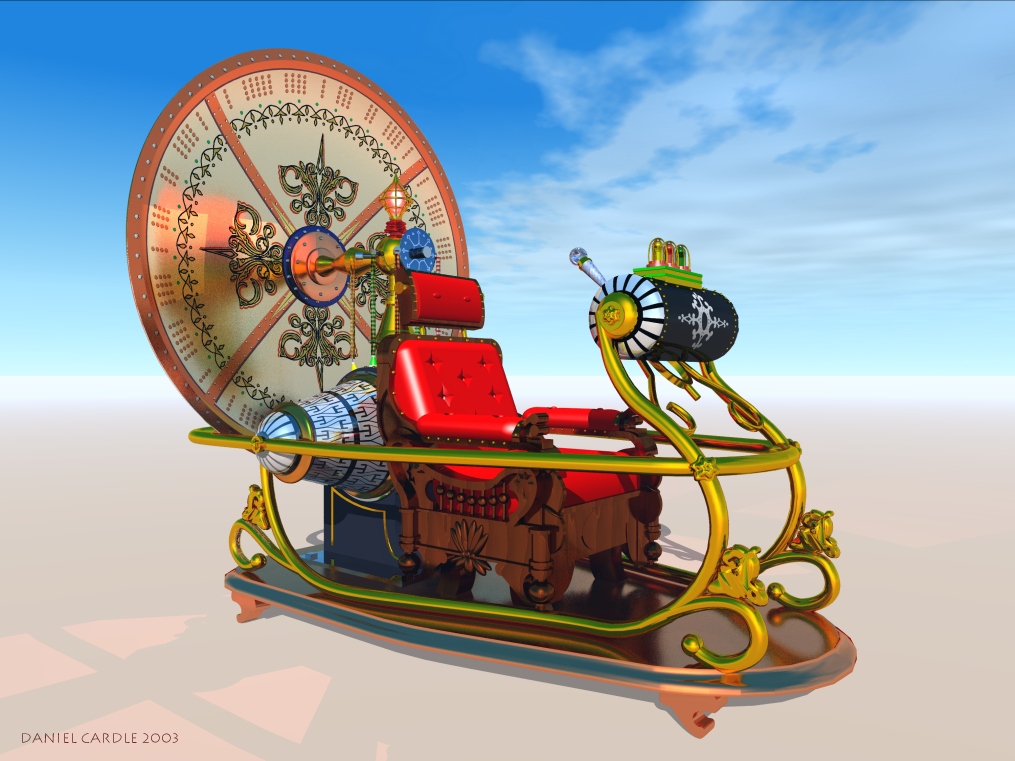“The Time Machine” (1895) was written at the latter end of the Victorian age, a time during which great scientific discoveries and leaps in progress were made. The concept of time travel was most likely fueled by the discovery of, and the advances of, electrical energy, which then would have prompted an imagining of unparalleled potential, if harnessed effectively – in this case, the potential to travel through time.
H.G. Wells was then, and is known today, as a keen science fiction author, having touched upon the subject of science fiction many times before. The Time Machine tells the tale of a keen scientist who claims, to a room full of scarcely-believing friends, that he has just returned from a journey into the distant future, where many erstwhile unbelievable things he has experienced and seen, w ho then begins to recount his adventure.
Told from a third-person perspective, the narrator is relaying the time traveler’s tale, who jump started his time machine to embark upon a distinctly uncomfortable, but incredible, journey through the fabric of space and time, to end up in the year 802, 701 AD, a time when the the “society” of Earth has become virtually unrecognizable.
The first “people” he encounters are the “Eloi”, a race of barely-human people who have evolved over time to become impossibly ethereal and delicate, both physically and mentally, the implication being that they signify the “elite” society of the contemporary age, who have evolved to a point where intellect and strong feeling are no longer conducive to their surviving. The time traveler soon forges a bond with a female Eloi called Weena, a relationship which is hinted as being potentially romantic, but the “woman” is far too childlike and simple for this to legitimately be the case.
He observes the Eloi, and their way of life, with a relatively dispassionate, but intellectually keen, narrative voice. However before long his time machine is mysteriously stolen by a dark and primitive underground-dwelling race called the Morlocks, who abhor sunlight and have evolved from the working class of the contemporary age to become what they now are. Worse, it turns out that every so often, they emerge during the night to feed on the Eloi, who in turn live in fear of them constantly.
This could be construed quite easily as the reverse of the upper class looking down upon, and suppressing, the working class, whom they deem to be inferior and exist only to serve the elite. The sheer extent of the division between the two races of people has resulted in both evolving to become extreme examples of “predator” and “prey”, in a brutal and inevitable “return to nature”.
After one night raid, in which the forest catches fire, engulfing Weena along with many of the Eloi (as is the implication), the time traveler casts himself into his time machine, just in time, to propel himself even further into the future, almost to the “end of time”, when the Sun is dying and on Earth there is a permanent sunset/sunrise, and there is virtually no trace of recognizable life.
There is a strong influence of a “Dying Earth Subgenre”, in which the ultimate end of the world, and of civilization, would inevitably form in the minds of the more imaginative and forward-thinking people of the age. Most remarkable here is the prompting of a mental projection into a future in which civilization, and society, disappear completely, and where humanity has left little to no trace.
After marveling at the unique glimpse of the future granted to him alone, the time traveler eventually manages to return to the late nineteenth century from where he came, just a few hours before his initial departure, and in good time to tell his friends of his adventure, once more.
Perhaps it is in the very fact that the entire tale is told as a “tale within a tale”, by a listener to the time traveler’s story, which shows that his tale is not doubted at all by at least one person, so fully and intricately has he related the experience. Given that time travel is still an endeavor which humanity is striving towards in the present day, and may still remain within the realms of “science fiction”, “The Time Machine” still manages to retain the same sense of speculative possibility today – over a century into the future – as it did at the time of writing.

